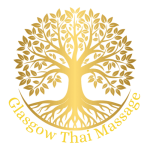Lower back pain stands as a widespread concern afflicting millions globally, impairing their quality of life and productivity. Whether presenting as a lingering discomfort or acute, stabbing sensations, lower back issues pose significant challenges to manage. This discourse aims to explore the multifaceted causes behind lower back pain and delve into effective remedies to alleviate symptoms and facilitate recovery.
Causes of Lower Back Pain:
1. Muscle Strain: Among the foremost triggers of lower back pain lies muscle strain or sprain. This often results from abrupt movements, improper lifting of heavy objects, or prolonged poor posture. Such strain induces inflammation and discomfort in the affected region, impeding routine activities.
2. Degenerative Disc Disease: Over time, the discs cushioning the vertebrae in the spine may degenerate, leading to conditions like degenerative disc disease. This degeneration can manifest as diminished disc height, spinal instability, and nerve compression, manifesting as lower back pain, stiffness, and restricted movement.
3. Herniated Disc: A herniated or slipped disc arises when the soft inner core of a spinal disc protrudes through its tough outer layer, exerting pressure on nearby nerves. This can trigger sharp, shooting pains radiating down the leg, commonly termed sciatica. Such herniation often stems from sudden twisting motions or heavy lifting.
4. Spinal Stenosis: Spinal stenosis denotes a narrowing of the spinal canal, which can compress nerves and the spinal cord. Typically advancing gradually with age, this condition may lead to lower back pain, numbness, weakness, and difficulty walking.
5. Spondylolisthesis: Spondylolisthesis emerges when a vertebra displaces out of alignment onto the vertebra below. This may occur due to fractures, degenerative changes, or congenital defects in the spine, resulting in lower back pain, muscle tension, and nerve compression.
Effective Treatments for Lower Back Pain:
1. Physical Therapy: A pivotal component in managing lower back pain involves physical therapy, which strengthens muscles around the spine, enhances flexibility, and corrects posture. Tailored exercise regimens can alleviate pain and mitigate future injuries.
2. Medications: Over-the-counter pain relievers like ibuprofen or acetaminophen aid in reducing inflammation and easing mild to moderate lower back pain. For severe cases, prescription medications such as muscle relaxants or anti-inflammatory drugs may be prescribed.
3. Heat and Cold Therapy: Application of heat or cold packs to the afflicted area can mitigate pain and inflammation linked with lower back issues. Heat therapy relaxes muscles and enhances blood flow, while cold therapy numbs the area and diminishes swelling.
4. Injections: Corticosteroid injections offer temporary relief from lower back pain by mitigating inflammation around affected nerves. These injections are commonly utilized for conditions like herniated discs or spinal stenosis causing nerve compression.
5. Massage Therapy: Massage therapy aids in alleviating muscle tension, enhancing circulation, and inducing relaxation in the lower back region. Techniques such as deep tissue massage or myofascial release target tight muscles and trigger points, fostering pain relief and improved mobility.
6. Surgery: In instances where conservative treatments prove inadequate, surgery may be recommended to address underlying structural issues causing lower back pain. Procedures like discectomy, laminectomy, or spinal fusion aim to stabilize the spine and alleviate nerve compression.
Lower back pain can significantly disrupt daily activities, yet with comprehensive understanding and effective treatment, relief and functionality can be restored. By addressing the root causes of lower back pain and implementing tailored treatment plans, individuals can experience considerable improvement in symptoms and overall well-being. If persistent lower back pain persists, consulting with a healthcare professional is advisable to ascertain the most suitable course of action tailored to one’s specific condition.

